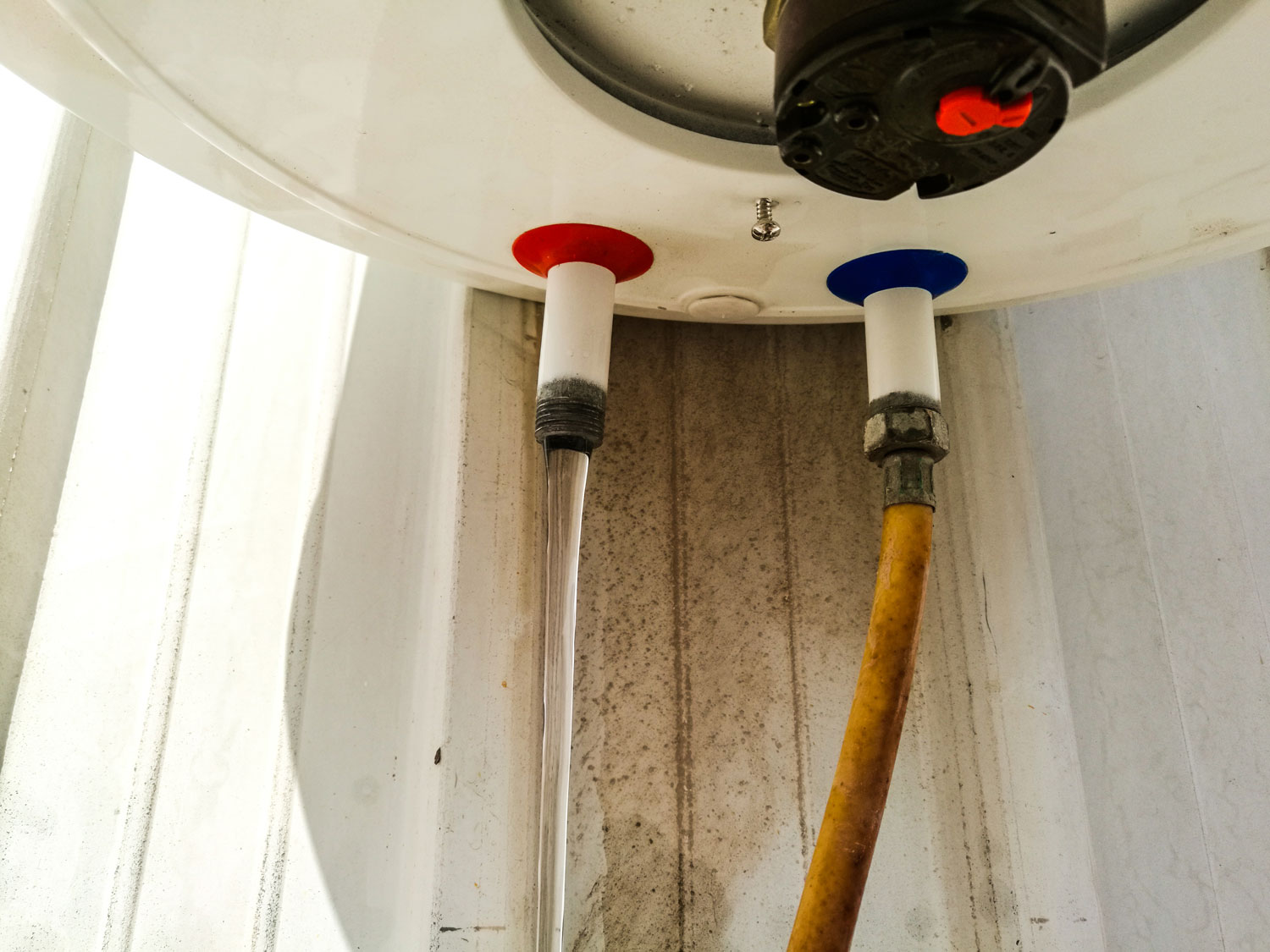Water Mold Fire Restoration would like to pass along some tips on how to avoid damage caused by and to your hot water heater. Leaking hot water heaters can be a result of many different problems, and an also cause several major water damage problems for your home. Leaks in hot water heaters may start very small then suddenly dump a huge amount of water across your floors. Because their leaks sometimes start slowly, a leaky hot water heater can lead to a mold infestation that may jeopardize your family's health.
Why Does It Leak?
A hot water heater may leak for a number of different reasons.Here are some common reasons for leaks that you should be aware of:
1. Age – most hot water heaters are said to have a life cycle of 10-12 years. But the conditions that they operate in, more often than not, shortens their life span and their efficiency. Hard water is the main culprit in causing this. As your hot water heater reaches it’s 7 th or 8 th year of operation, you should consider replacing it before something goes wrong.
2. Rust and Corrosion - metal fittings inside the water heater are prone to rust and corrosion. If you are mechanically inclined, there is a rod, called a cathodic anode rod that helps prevent rust inside the hot water heater’s tank. This rod can be removed periodically to determine its condition and replaced in an effort to prolong the heater’s lifespan. Usually tank rust isn’t discovered until it is too late and the heater tank has burst.
3. Sediment Buildup – sediment buildup occurs when hard water, water with a high mineral content, is heated. This sediment collects at the bottom of the tank and cause temperature levels to rise, putting added stain on the metal of the tank. It will also take up room and make it seem as though you have less hot water for your home.
4. High Water Pressure – high water pressure can damage hot water heaters and plumbing fixtures throughout your home. Installing an expansion tank on top of the water heater solves this problem. This unit helps to prevent unwanted increases in pressure as the water is heated. Generally, water expands about 2% as in is heated.
Maintaining Your Hot Water Heater
In order to extend the usefulness of your hot water heater there are some simple maintenance tasks that can be done:
- Drain your hot water heater tank at least once a year. This will help to get rid of any sediment that has built up.
- Inspect the hot water heater and pipes for signs of leaking or moisture.If you see any signs of corrosion buildup (usually bluish in color) you should talk to your plumber.
- Set the water temperature at 120 degrees Fahrenheit to avoid overheating. This will also save on energy costs.
- Annually test the pressure relief valve located near the top of the water heater. This valve will have a long pipe on it that extends toward the floor.
When your hot water heater begins to leak you will see water collecting in the pan that the tank is sitting in. If your water heater doesn’t have an overflow pan you will notice wet areas around it on the floor. This is if you are lucky. Sometimes the tank will burst or the bottom will rust out allowing water to flood the room. When this happens, it’s time for professional water damage help. Call Water Mold Fire Restoration at 800-905-0277 immediately. Our IICRC certified emergency water damage teams are standing by 24/7 to rush to your assistance. Or if you would prefer you can email us at help@watermoldfire.net.








